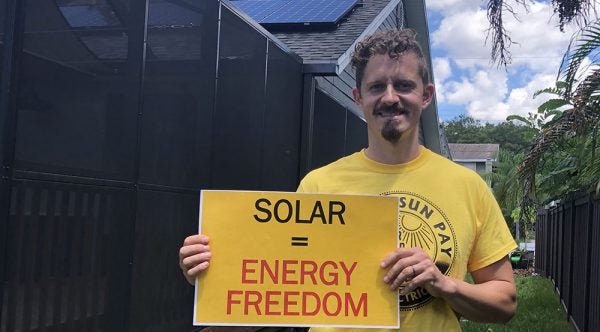What is happening
We should be able to choose where our energy comes from. Many of us are choosing solar. But now monopoly utility Idaho Power wants to stop us. They’re asking state regulators to take away the fair credit solar owners earn from the electricity they generate, called net metering. This would be bad for all Idaho families.
Rooftop solar is quickly becoming popular with Idahoans. Residents of the gem state are already embracing solar as an affordable solution to provide reliable and less expensive electricity. Since 2016, the number of rooftop solar owners increased from 1,000 in 2016 to more than 13,000 in 2022.
This spark of growth has caught the attention of Idaho Power. The monopoly utility has filed a proposal with utility regulators that drastically cuts the fair credit solar owners receive for any excess energy they produce and share with their neighbors. This bill crediting process is known as “net metering.”
Net metering is an electric billing tool that uses the electric grid to “store” excess energy produced by your solar panel system. Under net metering, the energy produced by your solar panels that you don’t use is credited back to you.
Why slashing net metering will stop solar from thriving
The proposed changes to net metering will prevent many families and small businesses from reaping the benefits of going solar and hurt the investments of current solar owners who installed systems after December 2019.
If approved by the Idaho Public Utilities Commission, the proposal would:
- Unfairly punish local solar owners for generating reliable electricity for themselves and their communities
- Neglect thousands of solar customers who invested in clean energy
- Severely reduce the value of net metering credits
- Make it harder to and more expensive to go solar
- Create a confusing and onerous billing system for customers
- Hurt residential solar customers who installed solar after 2019




